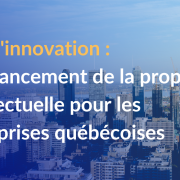5 Funding Opportunities for Robotics & Advanced Manufacturing Companies
Advanced manufacturing is at the core of the Canadian economy—without it, creating better products and services and improving productivity would be difficult, if not impossible. Robotics, additive manufacturing, and big data analytics are key to developing innovative and efficient manufacturing processes.
Canada has been seriously investing in robots since the 1990s. According to Statistics Canada, Canadian firms were using over $1.5 billion worth of robots by 2017. The majority of this technology was used in manufacturing. Invest in Canada reports that the manufacturing industry contributed to 9.5% of the Canadian GDP in 2021.
However, there are still many efforts to make greater strides in the industry and to increase Canada’s competitiveness and global prominence in the development of cutting-edge technologies. Several not-for-profits and government agencies across Canada have programs and initiatives that promote the advancement of the manufacturing industry.
Below are some key sponsors interested in fueling robotics and manufacturing innovation, as well as several major programs to look out for.
NGen
In 2018, the Government of Canada established five Innovation Superclusters, each representing a key industry sector in the Canadian economy: artificial intelligence, digital technology, plant protein development, marine technology, and advanced manufacturing. This initiative exists to foster innovation, collaboration between researchers and the private sector, and job creation, ultimately, strengthening Canada’s competitive edge in emerging technologies.
Next Generation Manufacturing Canada, or NGen, is the not-for-profit organization spearheading Canada’s Innovation Cluster for Advanced Manufacturing. NGen strives to build world-leading advanced manufacturing capabilities in Canada, delivering better products and creating more jobs. As of October 2022, NGen has supported 167 projects, with a total value of $605M, and has helped create 1,030 jobs.
NGen’s Pilot Projects & Feasibility Studies support collaborative projects, involving at least one Canadian SME and a partner organization, that seek to implement, develop, and/or de-risk the adoption of an advanced manufacturing technology or process.
Innovation, Science and Economic Development Canada
Innovation, Science and Economic Development Canada (ISED) is a department of the federal government with a mandate to build a competitive, growing Canadian economy. Through a variety of funds and programs, ISED fosters trade and investment, promotes science and innovation, and supports enterprise growth.
One such initiative is the Strategic Innovation Fund (SIF). This fund’s Business Innovation and Growth streams promote research and development projects that will accelerate the implementation and commercialization of innovative products, processes and services. The Collaborations and Networks streams support research and development through industry collaboration between private sector organizations, not-for-profits, and researchers. The SIF strengthens the competitive advantage of Canadian industries through technological advancement and collaboration.
Funding opportunities for Robotics and Advanced Manufacturing firms also exist through ISED’s Innovative Solutions Canada (ISC) program. ISC is a competitive research and development program stream that seeks pre-commercial innovations that respond to challenges issued by federal departments or agencies. These challenges are updated frequently and require high-tech solutions in various industries. Past challenges have included a call for prototypes in autonomous systems and robotics and request for proximity sensor systems for space robotics.
The National Research Council of Canada
The National Research Council of Canada (NRC) is the country’s largest federal research and development organization. The NRC partners with Canadian industry to bring innovation from lab to market, collaborating with over 1,000 companies each year.
The NRC is best known for its Industrial Research Assistance Program (IRAP), an initiative that helps Canadian SMEs develop and adopt new technologies, conduct research and development, and drive business growth through financial assistance, advisory services, and networking. In 2018-2019, IRAP increased its funding limit to $10 million; however, assistance typically ranges from $50,000 to $500,000.
Quebec’s Innovation Program
In Quebec, the Innovation Program supports innovation projects that are either conducted in-province or with partners in other provinces or countries. This government initiative, funded by the Quebec Ministery of Economy, Innovation and Energy (MEI), is administered by Investissement Québec, a business development corporation that aims to help businesses establish subsidiaries in Quebec and to strengthen the Quebec business ecosystem.
The program has two components: Support for Innovation Projects and Support for Mobilizing Projects. Both support for-profit corporations and groups of corporations, and social economy organizations including cooperatives and not-for-profit organizations. For robotics and advanced manufacturing organizations that thrive off of efficiency and cutting-edge technologies, the first component offers funding for the development or improvement of a product or process. Applicants must demonstrate a need for new innovation and for research and development efforts, and show a potential for commercializing the innovation.
Business Scale-up and Productivity Program
The Business Scale-up and Productivity (BSP) program helps high-growth firms adopt and commercialize leading-edge technologies and processes in advanced manufacturing, clean resources and technology, digital industries, health sciences, natural resources value-added processing, ocean technology, and value-added agriculture. The program accepts applications on an ongoing basis with no submission deadlines.
The BSP program operates across Canada under different Federal Economic Development Agencies. In Quebec, the program is led by Canada Economic Development for Quebec Regions (CED) and offers SMEs interest-free, repayable contributions equivalent to up to 50% of eligible project costs. It focuses on firms operating in manufacturing, food processing, information, communications and multimedia technologies, and life sciences, but other sectors may also be eligible.
The FedNor BSP program, which operates in Northern Ontario, offers the same.
The FedDev Ontario BSP program provides between $500,000 and $10 million in interest-free, repayable contributions supporting up to 35% of eligible project costs.
The Atlantic Canada Opportunities Agency BSP program serves businesses in New Brunswick, Newfoundland and Labrador, Nova Scotia, and Prince Edward Island, offering unsecured, interest-free, repayable contributions. Additional funding may be available to Indigenous businesses.
Finally, the PrairiesCan BSP serves Alberta, Manitoba, and Saskatchewan and funds up to 50% of eligible project costs, offering interest-free repayable contributions between $200,000 and $5 million. Preference will be given to applicants that are operating in food and ingredients processing, zero-emission heavy equipment vehicles, and critical minerals processing.
How R&D Partners Can Help
If you have any questions about the above programs or other funding opportunities, please reach out to Veronica Campbell at vcampbell@partenairesrd.com.









